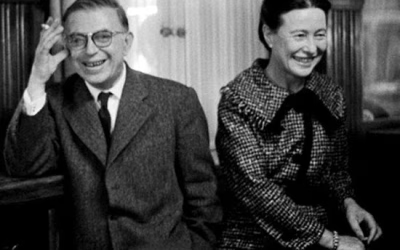Abstract
This book delves into the historical roots of individualism in Western culture, tracing its evolution from its earliest manifestations in ancient Greece to its profound influence on modern society. By examining the philosophical, cultural, and socio-political developments that have shaped the concept of individualism, the work offers a comprehensive analysis of how this ideology has transformed human identity, social structures, and collective values over millennia.
The journey begins in ancient Greece, where the seeds of individualism were first sown through the works of philosophers such as Socrates, Plato, and Aristotle. These thinkers emphasized the importance of self-knowledge, personal virtue, and rational thought, laying the groundwork for the Western tradition of valuing the individual. The book explores how these ideas were further developed during the Roman Empire, particularly through the Stoic emphasis on personal responsibility and the inner self, and how they persisted through the Middle Ages despite the dominant collectivist ethos of the time.
The Renaissance marked a pivotal turning point in the history of individualism, as the revival of classical knowledge and the rise of humanism placed the individual at the center of intellectual and artistic endeavors. Figures like Leonardo da Vinci and Michelangelo celebrated human potential and creativity, while thinkers such as Erasmus and Thomas More questioned traditional authority and championed personal freedom. The book examines how these developments set the stage for the Enlightenment, a period that saw the crystallization of individualism as a core value of Western thought.
During the Enlightenment, philosophers like John Locke, Jean-Jacques Rousseau, and Immanuel Kant articulated theories of individual rights, autonomy, and self-determination that would profoundly influence political and social systems. The book analyzes how these ideas were enshrined in foundational documents such as the American Declaration of Independence and the French Declaration of the Rights of Man and of the Citizen, shaping the modern understanding of democracy and human rights. It also explores the economic dimension of individualism, particularly through the lens of Adam Smith’s The Wealth of Nations, which linked individual self-interest to the prosperity of society as a whole.
Moving into the modern era, the book investigates the complex interplay between individualism and the forces of industrialization, urbanization, and globalization. It considers how the rise of capitalism, consumer culture, and digital technology has both empowered and alienated individuals, creating new opportunities for self-expression while also fostering social fragmentation and inequality. The work also addresses contemporary debates about the limits of individualism, particularly in the context of environmental crises, social justice movements, and the growing emphasis on collective responsibility.
Throughout the book, the author emphasizes the dual nature of individualism as both a liberating force and a source of tension. On one hand, it has fostered innovation, creativity, and personal freedom; on the other, it has contributed to social isolation, competition, and the erosion of communal bonds. By weaving together historical analysis, philosophical reflection, and contemporary examples, the book provides a nuanced understanding of individualism’s enduring impact on human identity and society.
In conclusion, this work offers a timely and thought-provoking exploration of one of the defining ideologies of Western culture. It invites readers to reflect on the ways in which individualism has shaped their own lives and to consider its future trajectory in an increasingly interconnected and interdependent world.



